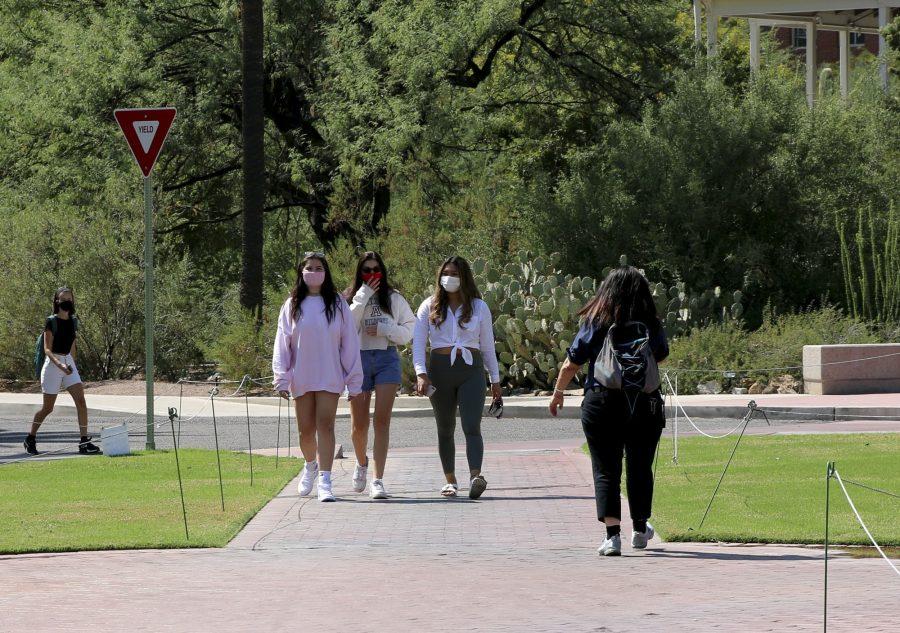Arizona public schools and universities are no longer banned from enacting mask and vaccination mandates, according to a ruling by a Maricopa County judge on Sept. 27.
The ban on mandates related to COVID-19, included in budget reconciliation bills passed in late June, were set to come into effect on Wednesday, Sept. 29. A Complaint for Declaratory and Injunctive Relief to reverse sections of the related House and State Bills was filed on Aug. 12.
Maricopa County Judge Katherine Cooper found that sections of HB 2898, SB 1824, SB 1825 and SB 1819 violated the title and/or subject matter requirements of the Arizona Constitution. These requirements maintain that the contents of a bill must be connected to its title. These bills were titled under “budget reconciliation,” but included sections of legislation on prohibitions of mask and vaccination mandates.
On SB 1819, Cooper wrote, “The bill is classic logrolling — a medley of special interests cobbled together to force a vote for all or none.”
Opposition to the ruling
Hours after the decision, Arizona Attorney General Mark Brnovich expressed his intentions to appeal in a tweet.
“It’s unfortunate that left-wing groups want to undermine the legislative process and indoctrinate our children with critical race theory and force vaccines on those who don’t want them,” Brnovich tweeted.
A spokesman for Gov. Doug Ducey, CJ Karamargin, similarly conveyed his intentions of an appeal, calling the decision on Sept. 27, “the result of a rogue judge.”
Support for the ruling and moving forward
Laurie Stoff, a representative for the United Campus Workers of Arizona, said that though the governor has indicated his intent to appeal the decision, they are “ready for the legal battle that will come to ensure that all workers in higher education across the state are protected.”
Arizona House Minority Leader Reginald Bolding and Arizona Senate Minority Leader Rebecca Rios have also shown their support of the decision in an amici curiae brief.
“This year’s budget processes and bills are precisely what our constitution prohibits,” the brief stated. “The Legislature knows how to craft an appropriate budget; it has done so successfully for many years, but it did not even come close this year.”
On another note, plaintiff and ASU professor Richard Newhauser said that though he is pleased with the decision, he hopes that it will lead to “the kinds of plans that were spoken about before the fall semester started.”
This includes the possibility of vaccination mandates, regular testing and more consistent mask wearing in university facilities, both outside and in large groups.
“Those are the measures that had been proven to keep people safe at schools, at other universities and everywhere around the United States,” Newhauser said.
Demonstration planned Sept. 30
Stoff similarly described the ruling as a “great victory” for their organization, public K-12 education workers and those in higher education.
“It now removes any legal impediments to ensure that full masking and vaccine requirements can be put into place,” Stoff said. “And so we look forward to our leaders doing what is right and implementing the safest protocols for working in pandemic conditions.”
In a demand for these protocols, the UCWAZ, in conjunction with student groups and other labor organizations, will have a demonstration on Sept. 30 at the University of Arizona and ASU.
“We are going to push for full masking requirements in all indoor spaces, vaccination requirements for all faculty and students, robust testing for everyone regardless of vaccination status, flexible working accommodations for those who are at high risk as well as hazard pay for those most at risk,” Stoff said.
Follow the Daily Wildcat on Twitter









